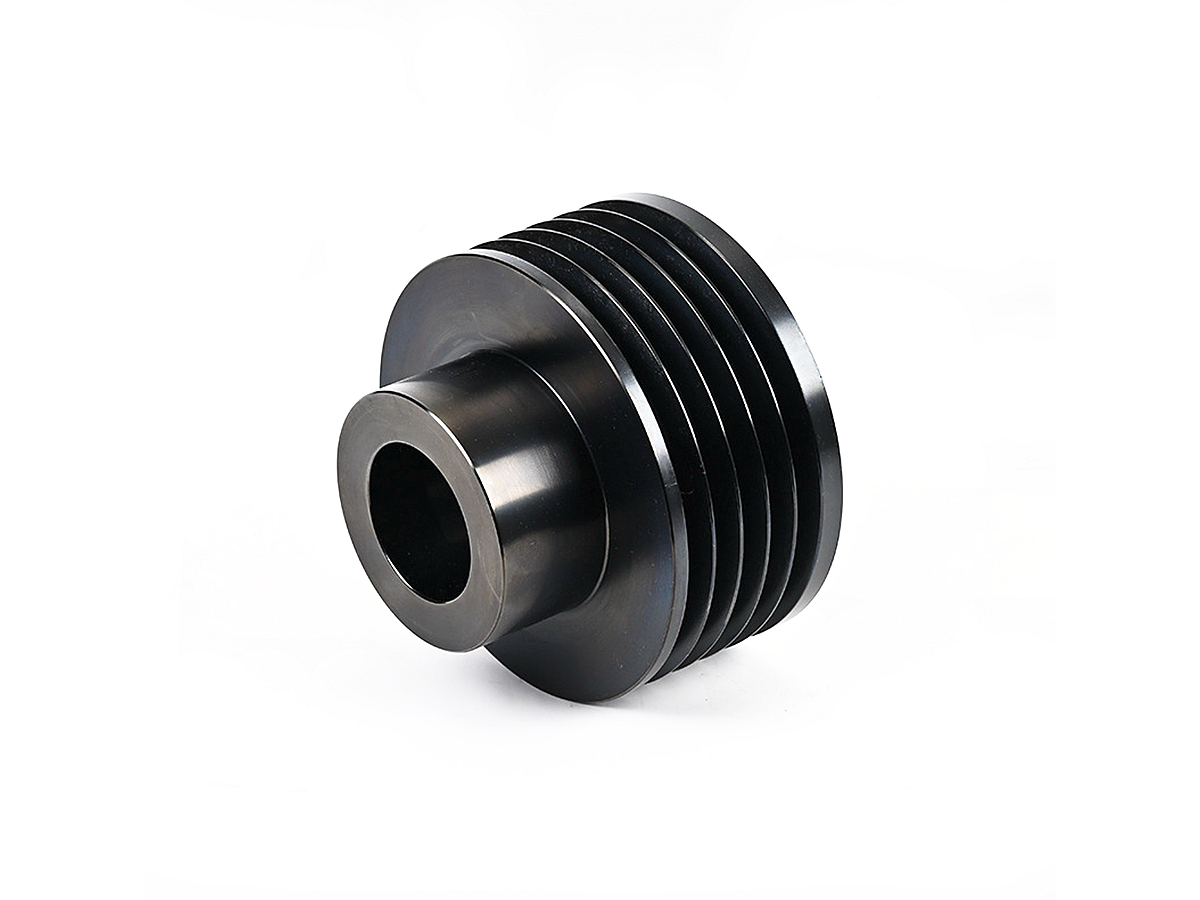Advanced CNC Machining Capabilities for Precision Automation Equipment Components
Introduction to CNC Machining for Automation Equipment
Automation equipment components demand exceptional precision and reliability to ensure accurate performance and longevity. Advanced CNC machining delivers tight dimensional tolerances (±0.005 mm) and superior surface finishes (Ra ≤0.8 µm), essential for precision parts such as robotic joints, actuators, sensor housings, and intricate mechanical linkages. These components play a critical role across industries such as automation, robotics, and industrial equipment.
Utilizing cutting-edge CNC machining services, manufacturers achieve consistently precise components, significantly enhancing automation system accuracy, stability, and operational efficiency even under continuous, intensive use.
Material Comparison for Precision Automation Components
Material Performance Comparison
Material | Tensile Strength (MPa) | Wear Resistance | Corrosion Resistance | Typical Applications | Advantage |
|---|---|---|---|---|---|
276-310 | Good | Excellent | Robotic frames, actuator housings | Excellent machinability, lightweight | |
500-700 | Very Good | Excellent | Precision fittings, sensor housings | High corrosion resistance, ease of machining | |
900-1100 | Excellent | Exceptional | High-performance robotic joints | Superior strength-to-weight ratio | |
360-400 | Good | Good | Connectors, intricate fittings | Outstanding machinability, precise dimensions |
Material Selection Strategy for Automation Components
The material selection process for CNC machined automation components considers mechanical performance, operational conditions, weight sensitivity, and machining efficiency:
Aluminum 6061-T6 provides excellent machinability, corrosion resistance, and lightweight properties, ideal for frames and actuator housings that benefit from reduced mass.
Stainless Steel SUS303 combines high corrosion resistance with easy machinability, making it suitable for precision sensor housings and complex fittings used in aggressive environments.
Titanium Ti-6Al-4V offers exceptional strength-to-weight ratio and corrosion resistance, optimal for robotic joints and critical load-bearing parts in demanding weight-sensitive applications.
Brass C360 is chosen for precision connectors and intricate fittings due to its exceptional machinability, allowing accurate dimensional tolerances (±0.005 mm) essential for reliable connections.
CNC Machining Process Analysis for Automation Components
CNC Machining Processes Performance Comparison
CNC Machining Technology | Dimensional Accuracy (mm) | Surface Roughness (Ra µm) | Typical Applications | Key Advantages |
|---|---|---|---|---|
±0.005-0.01 | 0.4-1.0 | Precision holes, actuator casings | High accuracy, consistent bore diameters | |
±0.01-0.02 | 0.8-1.6 | Mounting holes, sensor fixtures | Rapid precision, consistent depths | |
±0.005-0.01 | 0.4-1.0 | Sensor housings, mechanical linkages | Complex geometry, precision | |
±0.003-0.008 | 0.2-0.8 | Complex robotic joints, actuators | Advanced geometry, high precision |
CNC Machining Process Selection Strategy for Automation Components
Selecting the appropriate CNC machining method ensures accurate dimensions, optimal performance, and enhanced component longevity:
CNC Boring delivers precise internal diameters critical for actuator casings and bearing seats, ensuring accurate alignment and operational efficiency.
CNC Drilling rapidly produces accurate mounting and assembly holes in sensor fixtures and precision brackets, ensuring consistent quality in large-volume production.
CNC Milling excels in creating intricate sensor housings and precise mechanical linkages, delivering accurate geometry within tight tolerances (±0.005 mm).
Multi-axis CNC Machining is best suited for complex geometries such as advanced robotic joints and intricate actuator components, providing unparalleled precision down to ±0.003 mm.
Surface Treatment Solutions for CNC Machined Automation Parts
Surface Treatment Performance Comparison
Treatment Method | Wear Resistance | Corrosion Resistance | Max Operating Temp (°C) | Typical Applications | Key Features |
|---|---|---|---|---|---|
Good | Outstanding (~1500 hrs ASTM B117) | 300 | Aluminum housings, frames | Durable finish, corrosion protection | |
Excellent | Exceptional (~1000 hrs ASTM B117) | 400 | Fittings, connectors | Uniform coating, robust protection | |
Excellent | Outstanding (~1200 hrs ASTM B117) | 450 | Shafts, precision joints | High hardness, reduced friction | |
Moderate | Excellent (~800 hrs ASTM B117) | 250 | Stainless steel sensor housings | Enhanced corrosion resistance |
Surface Treatment Selection Strategy for Automation Components
Choosing suitable surface treatments significantly extends component lifespan and improves operational reliability:
Anodizing provides superior corrosion resistance for aluminum frames and actuator housings, significantly extending operational life in challenging environments.
Electroless Nickel Plating delivers excellent corrosion protection and uniform thickness, ideal for intricate fittings and connectors frequently exposed to corrosive conditions.
Chrome Plating enhances surface hardness and reduces friction, making it perfect for shafts and precision joints requiring durability under repetitive mechanical stresses.
Passivation is effective for stainless steel components, offering enhanced corrosion protection, essential for sensor housings and precision automation fittings.
Typical Prototyping Method
CNC Machining Prototyping: Provides prototypes with precision accuracy (±0.005 mm) and surface finishes (Ra ≤0.8 µm), ideal for validating automation component performance under realistic conditions.
Material Jetting: Offers detailed prototypes with exceptional resolutions (layer thickness 16-32 µm), suitable for intricate geometries and functional verification of precision automation parts.
Powder Bed Fusion: Enables production of robust metal prototypes with complex features, accuracy around ±0.1 mm, perfect for functional testing in high-stress operational scenarios.
Quality Control Standards for CNC Machined Automation Components
Precision dimensional inspections via Coordinate Measuring Machines (CMM).
Surface roughness testing using profilometers.
Mechanical and fatigue testing compliant with ASTM and ISO standards.
Non-destructive testing methods (ultrasonic, radiographic) for internal and external integrity verification.
Corrosion resistance evaluation per ASTM B117 salt spray tests.
Complete traceability and documentation following ISO 9001 standards.
Industry Applications of Precision CNC Machined Automation Components
Precision robotic joints and actuators.
Sensor housings and electronic component casings.
High-precision mechanical linkages.
Customized fittings and connectors for automation systems.
Related FAQs:
Why is CNC machining ideal for precision automation components?
What materials best suit high-performance automation parts?
Which CNC machining processes provide maximum precision for automation systems?
How do surface treatments enhance the longevity of automation components?
What quality standards ensure reliable CNC machined automation components?

